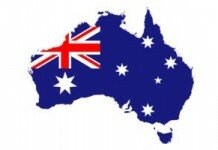
Earlier this year, the US Supreme Court took a bold decision in disbanding the 1992 Professional and Amateur Sports Protection Act. By disbanding this law, it meant that the Federal government now recognises betting on the outcome of sports games (sports betting). With the Federal government recognising sports betting, the ball is now in the court of individual states to enact laws that legalise sports betting in their respective jurisdictions. Virtually all of the major sports played in the US are covered i.e. basketball, baseball and football among others.
The War on Gaming Won after a Struggle
When taking into consideration the gaming laws in other countries, the US is one of the very last countries to officially recognise sports betting. The ‘War on Gaming’ in the US has in general featured two opponents i.e. those opposing sports betting characterised by sports associations including Major League Baseball, NHL, NBA and NFL and those in support of sports betting characterised by lobby groups. Before the 1992 Professional and Amateur Sports Protection Act was enacted, only four states had legalised sports betting (Oregon, Nevada, Montana and Delaware) and it is these four that have always had relaxed sports betting laws. With individual states now able to enact their own laws legalising sports betting, the ‘War on Gaming’ can effectively be termed won by the side in support of sports betting.
What the US Stands to Benefit from Sports Betting
Relaxing the gaming laws in the country was a bold decision by the US Supreme Court and it opens the doors to a number of opportunities for the US economy. Firstly, as states start enacting sports betting laws, one thing that is certain is that there is going to be a proliferation of bookmakers. As more and more bookmakers’ open shop, they will directly and indirectly help in employing a large percentage of the US population thereby reducing the country’s unemployment rate. The American Gaming Association in 2014 released a report which stated that over 570 000 people are directly employed in brick and mortar casinos hence a number similar in nature to this can also be achieved when bookmakers are established in several states.
The US economy also stands to benefit immensely from taxes that are to be levied on bookmakers. According to reports released towards the end of last year, the US gambling industry is estimated to be worth $240 billion. When individual states start legalising sports betting laws, odds are, hundreds of bookmakers will mushroom across the US and, in turn, these bookmakers’ will be taxed by the government hence increasing the revenue base of the country.
In addition, by opening up the gaming market to sports betting, the US will ensure that players play safely and securely. The US has a number of genuine casinos (mostly land based) that offer a variety of casino games. However, there are also some fake and unscrupulous casinos that reap people off. With a regulated gaming market, it will be easier to filter out all the fake casinos hence guaranteeing that players play at genuine casinos.









